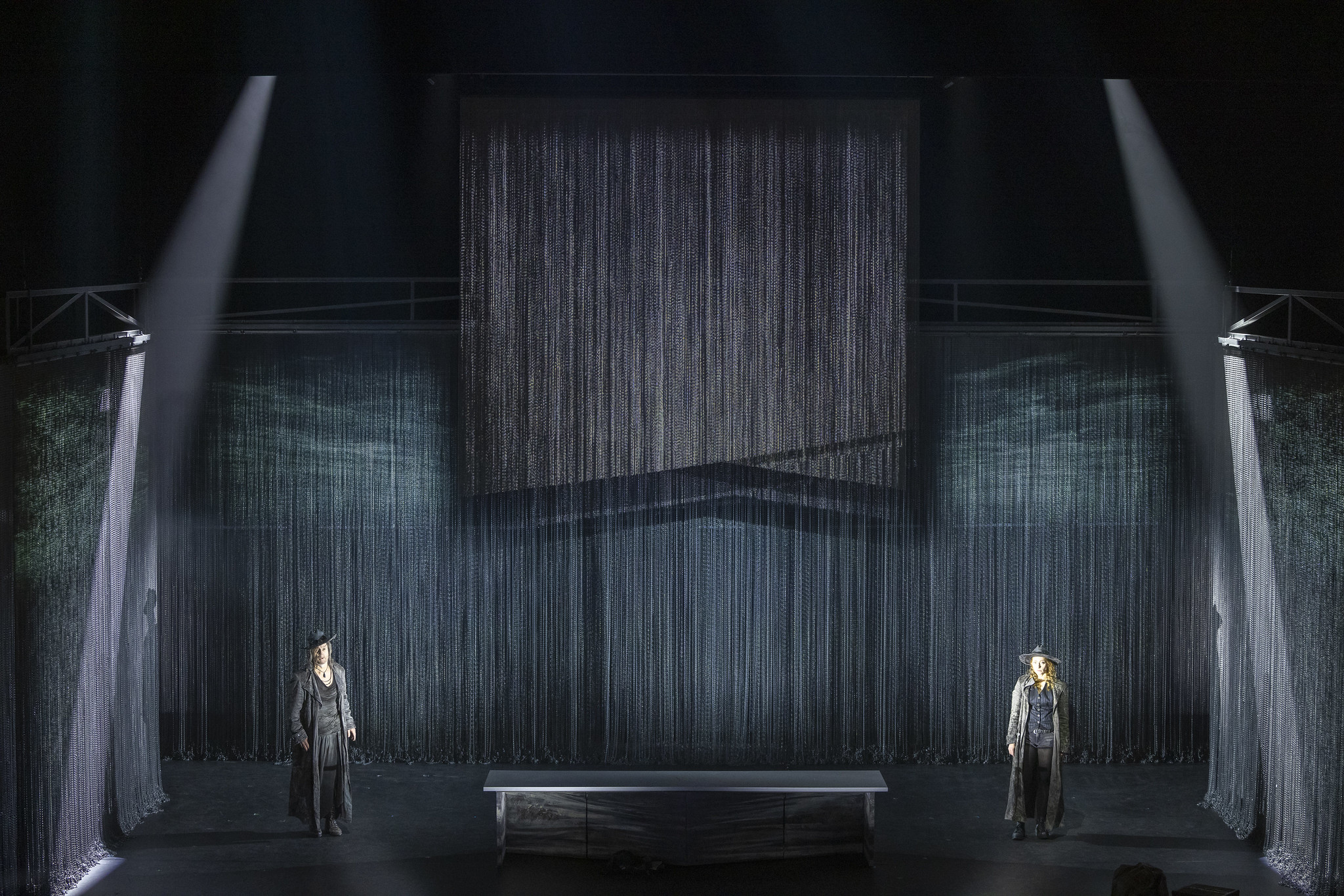Opera North’s powerhouse production of The Flying Dutchman brings Wagner’s depiction of Faustian love onto the stage in triumphant fashion

The Flying Dutchman | The Lowry, Salford | 15th of March 2025
Reviewed by Paul Knowles and Edith Powell
Opera North is a leading UK arts organisation based in Leeds. Its mission is to make opera and music accessible through producing bold, innovative productions for contemporary audiences. This, coupled with the company’s belief in championing diverse artists, repertoire and audiences has led to a brave artistic vision in Opera North’s production of The Flying Dutchman. The production is daring and astounding in its ability to capture the bombastic vision of Richard Wagner’s Faustian Love story whilst simultaneously drawing attention to the 21st century migrant crisis.
Wagner’s opera is based on Dutch folklore that tells of the cursed ship ‘The Flying Dutchman’, condemned to sail the seven seas for eternity. The tormented spectral captain of The Dutchman is only granted a reprieve to make landfall every seven years. This one day of liberation is marred with the goal of finding a faithful wife, as only she can save his soul from eternal damnation. So, when the captain meets the influential Daland, and hears he has a daughter, he offers all the treasures he has accrued on his damned voyage for her hand in marriage. When Daland’s daughter, Senta, and the captain meet, a fatalistic true love is sparked between the pair.
The opera’s three acts open with migrant voices, telling their stories of crossing the North Sea in a desperate attempt to flee countries suffering humanitarian crises such as war, famine, and political persecution. These stories are stark and raw, often recounting the tragic loss of life that happens during these journeys. The migrant voices offer an emotional gravitas to Wagner’s score that captures the power and brutality of the sea with its sweeping crescendos of booming drums, fever pitched strings and haunting notes.
Opera North’s production opens with a bleak cold sea and sky being projected onto a background screen. The sea and sky are churning and whirling continuously, acting as the perfect visual metaphor for the Captain’s bleak life of solitude on the seven seas. With the Captain’s manifested hopelessness displayed to us, Wagner’s opening score gradually reveals the Captain spying Daland’s ship on the horizon. Afterwards, the screen drops, and we are invited inside the workings of Daland’s ship, reimagined as a stockbroker’s office. This scene is a triumph, as the opera’s chorus demonstrates its full vocal range to capture the confusing panic of Daland’s ship being haunted by the ghostly Dutchman. Clive Bayley gives an impressive performance as Daland, capturing the stern authority of an influential man who is not easily flustered and senses an opportunity to gain wealth in his meeting with the Captain. The Captain is played with magnificent vigour but also great sympathy by Robert Hayward, who captures an honourable man, brought low by a moment of arrogant pride. Hayward’s Captain is the ideal sparring partner for Bayley’s Daland and the duet between the two that closes act one, captures the shifting power dynamics between them as they wrestle for control over the other. Wagner’s score reflects these fluctuating states of power, as the music constantly shifts from strongly controlled and regulated when one man believes they are in charge of the situation to quick and chaotic when the other man wrestles power back.
The opening of act two was our personal favourite, as the women, left completing the domestic chores on Daland’s estate, gossip about Senta’s infatuation with the story of the Flying Dutchman. The choreography showing the women gossiping and Senta being ostracised by them was stunning, and the vocal talents of the female chorus captured the bustle of a household in uproar awaiting their master’s return. Senta is played with dignity, conviction and empathy by Layal Claire. Her performance steals the show, especially the scene where she and the Captain swear their vows to each other over the dinner table.
The staging of the opera is innovative from the use of projected images; sheets that represent the ship’s masts that the cast enter and leave stage from, the ship’s rigging and cargo lowered down from the stage’s roof to represent the drowned lives of people lost at sea: a powerful visual representation of the migrant’s stories. It all works harmoniously to add a contemporary feel to Wagner’s classic opera.
As outlined before, Opera North’s ambition is to make opera accessible to everybody through producing innovative, ambitious contemporary productions that champion diversity. In this brave and contemporary production of The Flying Dutchman, Opera North has achieved its ambitions, highlighting the human cost of the migrant crisis whilst staying faithful to Wagner’s Faustian love story. Bravo!
Reviewed by Paul Knowles and Edith Powell
